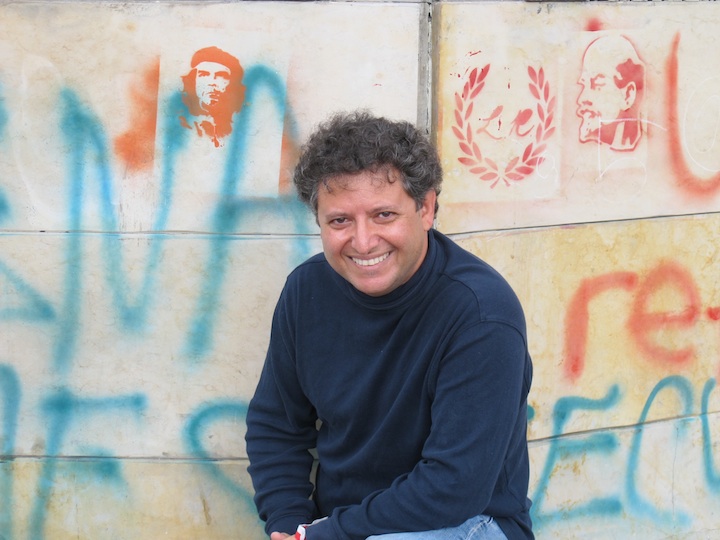Iran Feature: How News and Social Media Are Changing --- An Interview with Jahanshah Javid
 Jahanshah Javid started the website Iranian.com in 1995 to feature news in English about Iran. As he moves to a new project, Iroon.com, he spoke with Arash Karami of Tehran Bureau about news, social media, and the Islamic Republic.
Jahanshah Javid started the website Iranian.com in 1995 to feature news in English about Iran. As he moves to a new project, Iroon.com, he spoke with Arash Karami of Tehran Bureau about news, social media, and the Islamic Republic.
When and why did you start Iranian.com?
It was in July of 1995. I had thought about launching a print magazine for Iranian Americans in English. There was no medium that appealed to the growing number of English-speaking emigrants. But there were practical problems. It would cost a small fortune to print a quality magazine and maintain a staff. And who was going to buy it? Very few bought or subscribed to Iranian newspapers and magazines even if they could find them in local outlets. The Internet was very young and untested but it had enormous potential for reaching a worldwide audience at a fraction of the cost of conventional media.
So I hooked up with my cousin Karim Ardalan, who had just started an Internet development company, and launched The Iranian, a bimonthly online magazine. I would gather and prepare the articles, and my cousin would post them online. The Internet gave the power to publish practically anything and everything without state control. With all the problems with censorship in Iran, it was a tremendous opportunity to exercise freedom of speech.
Can you briefly take us through the evolution of the first edition to what it is today?
For the first year or so, new content was published every two months. That's how long it took to find, write, and publish new articles. Eventually as viewership grew and more people submitted articles, it became easier to gather and post content. The site became a monthly and soon later, around 1997, it was updated every day. But the updates were all done manually by myself and people could not express themselves directly. Finally in 2007 I teamed up with a group of private investors in northern California and Iranian.com was transformed into an interactive site.
It is difficult for me to measure and understand Iranian.com's impact in these 17 years. I have been involved too deeply in its day-to-day operation to be able to give an objective assessment. That's for others to judge and make sense of its huge archive of hundreds of thousands of pages --- the largest of any Iranian site. But one thing I am sure of: Iranian.com has been the freest, most diverse and progressive forum in the history of Iranian media. Its motto "Nothing is sacred" meant anyone could publish virtually any opinion, story, photo...without fear of state or religious persecution. That was a first for Iranians.
You studied journalism and media in the 1990s. The profession has obviously evolved drastically and is continuing to change today. What role do you think your education played in how you approach your work?
I started my journalism career as a translator for the Islamic Republic News Agency in Tehran. I had just turned 19. I had no skills and or understanding of news and media, except that as a young supporter of the revolution I felt an obligation to promote it. That changed when I was sent to London to attend a summer journalism course at City University. The teachers were all experienced journalists and what I learned was that facts and freedom of expression were most important for a healthy society. I thought that healthy society could be the Islamic Republic where a free press and critical opinion could allow everyone to participate and improve society together. But the government became more and more repressive and my belief in a utopian religious society eroded.
In 1990, I left Iran and began studying journalism and communication at the University of New Mexico in Albuquerque and later Hunter College in New York where I received my B.A. in media studies in 1995. I enjoyed my classes and professors enormously. They helped me understand what was wrong in Iran and why free speech is so important in maintaining open societies. I am glad to see the children of many Iranian emigrants have chosen to study media --- something their parents would never do in Iran where practicing real journalism is fraught with danger.

 Saturday, September 1, 2012 at 7:02
Saturday, September 1, 2012 at 7:02
Reader Comments